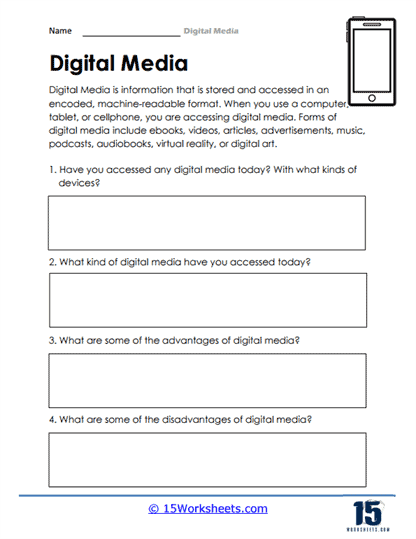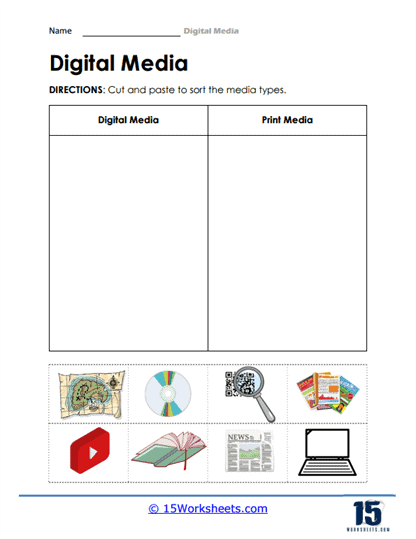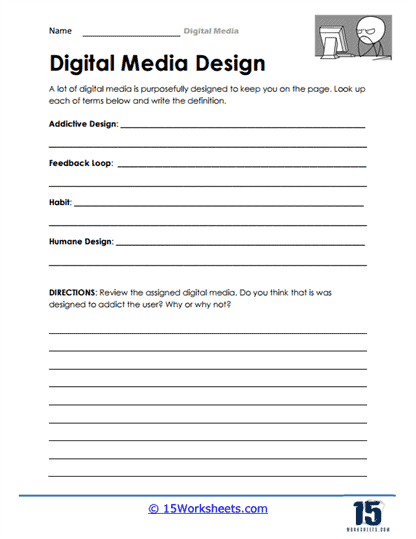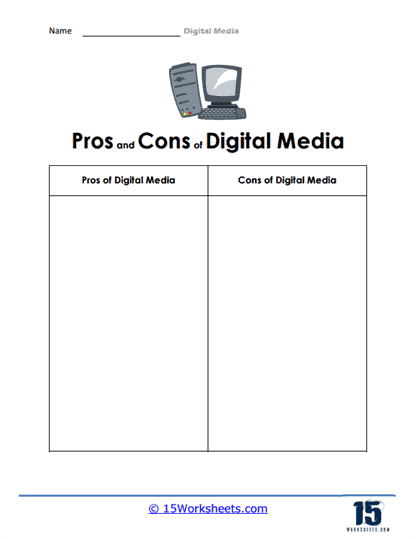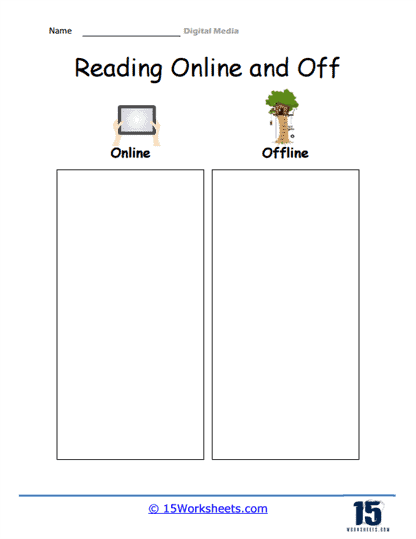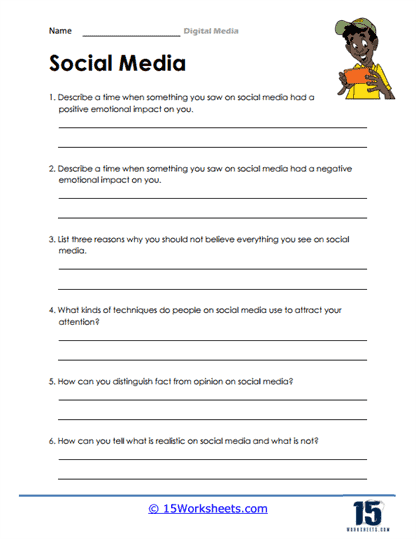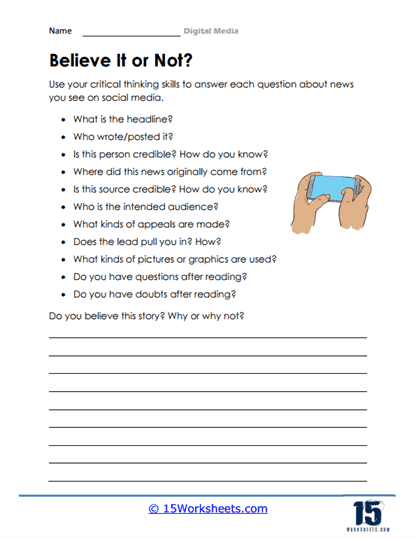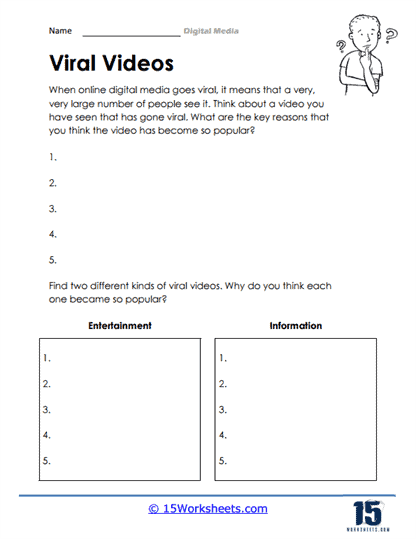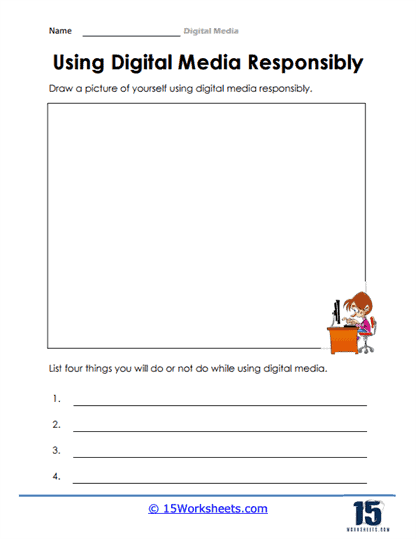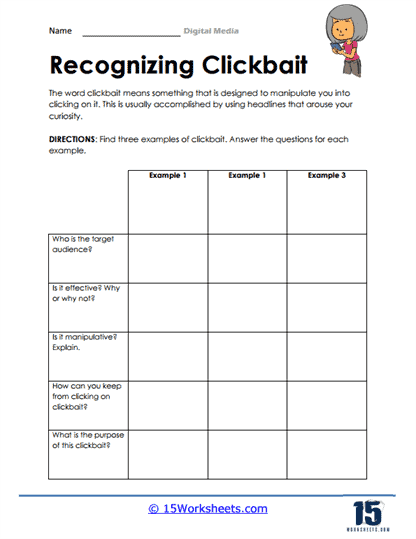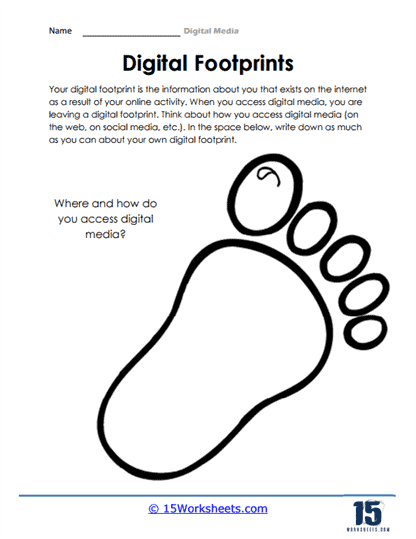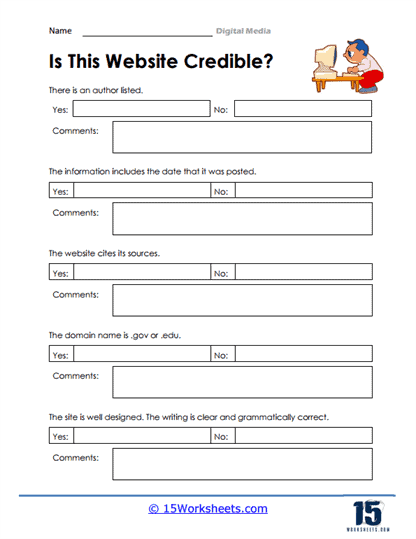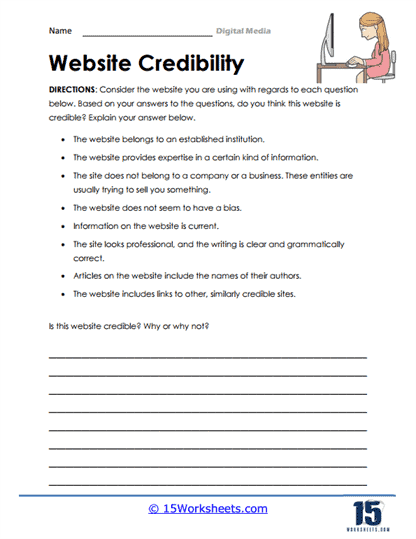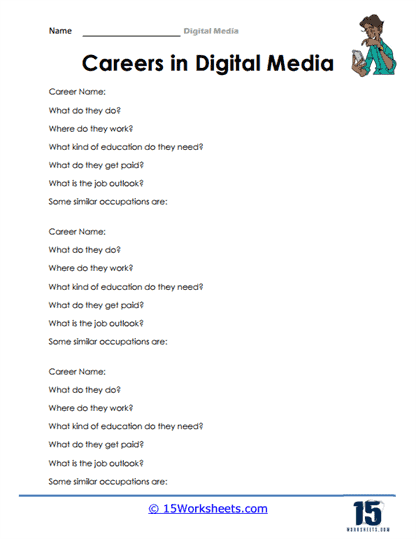Digital Media Worksheets
All About These 15 Worksheets
In today’s digital age, it is crucial for students to develop a strong understanding of digital media and its impact on various aspects of their lives. This series of 15 worksheets has been thoughtfully designed to help them navigate the digital landscape and engage with digital media critically and responsibly. Each worksheet focuses on different aspects of digital media, providing guidance, exercises, and activities to enhance students’ digital literacy and empower them to make informed decisions in the digital world.
The worksheets in this series cover various elements of digital media, including media literacy, online safety, evaluating sources, digital footprint, and responsible social media use. By engaging with these worksheets, students will develop the skills necessary to navigate digital platforms, critically analyze digital content, and make responsible choices in their online interactions. Through these worksheets, students will:
- Analyze and evaluate media messages, understand biases, and identify reliable sources of information;
- Explore online safety practices and learn how to protect themselves in the digital world;
- Practice evaluating the credibility and reliability of digital sources;
- Reflect on their online presence, consider the potential impact of their digital actions, and make informed decisions about their online identity;
- Understand responsible and ethical social media use;
- Explore social media platforms, online collaboration tools, and digital resources to enhance their digital literacy;
- And analyze their digital media habits, consider the impact of digital media on their lives, and set personal goals for responsible and meaningful digital engagement.
By engaging with these Digital Media worksheets, students will develop valuable digital literacy skills, enhance their critical thinking abilities, and navigate the digital landscape with confidence. These practical exercises and activities provide a foundation for them to be responsible digital citizens, effectively evaluate digital content, and make informed decisions in their online interactions. In summary, these worksheets foster a positive and responsible approach to digital media, empowering students to leverage its benefits while mitigating potential risks.
What is Digital Media?
Digital media is a catch-all term encompassing a wide range of different types of content. This can include traditional media like books, newspapers, and magazines to more modern forms like websites, social media, and apps.
Digital media has transformed the way we consume information. We now have access to a seemingly infinite amount of information at our fingertips, and we can consume this content in various ways. We can read articles, watch videos, listen to podcasts, or even play games.
Digital media has also transformed the way we interact with each other. Social media platforms like Facebook, Twitter, and Instagram allow us to connect with friends and family worldwide. We can also use these platforms to connect with like-minded people and build communities.
Effects of Digital Media on Children
Digital media has had a profound effect on children. It has changed the way they interact with their peers, the way they learn, and even the way they think.
On the one hand, digital media has made it easier for children to connect with each other. They can communicate more efficiently and share information more quickly. This can be great, as it allows children to form close friendships and support networks.
On the other hand, digital media can also be a distraction. It can pull children away from face-to-face interactions and make it harder for them to concentrate on tasks such as schoolwork.
So, parents need to be aware of digital media’s impact on their children. They need to decide how much screen time is appropriate and ensure that their children use digital media in a beneficial, not harmful way.
Impact of Digital Media on Mental Health
Digital media has had a profound impact on our mental health. It is now estimated that nearly one in four people have a mental illness, and the rate is only increasing. With the ubiquity of social media and the 24-hour news cycle, we are constantly bombarded with negative information that can trigger anxiety, depression, and other mental health issues.
While there are many potential negative consequences of digital media use, there are also some positives. For example, you can use digital media to connect with people who might otherwise feel isolated and alone. You can also use it to educate people about mental health issues and provide support and resources.
Digital media has the potential to be a powerful force for good or for ill. It is essential to be aware of the potential impact of digital media on our mental health and use it to maximize the positives and minimize the negatives.
How to Get Good Out of Digital Media?
There are many different types of content in digital media, and not all is good. Here are a few tips to help you get the most out of your digital media:
Be Choosy About What You Share
Just because you can share everything doesn’t mean you should. Think carefully about what you’re sharing and why. If you wouldn’t want your boss or your parents to see it, then it’s probably not something you should be sharing.
Don’t Believe Everything You See
Just because something is shared on social media doesn’t mean it’s true. People can and do lie, so always take what you see with a grain of salt.
Be Respectful of Others
When interacting with people online, remember that they’re real people with real feelings. Treat them with respect, and don’t say or do anything you wouldn’t want to say or do in person.
Be Careful About What You Click On
Just because something looks interesting doesn’t mean it is. There are many scams and viruses, so be careful about what you click on. Don’t click on it if you’re unsure whether something is safe.
Take Breaks from Social Media
It’s easy to get sucked into social media and forget about the real world. Take a break if you spend too much time on social media. Go outside, spend time with friends and family, and do something that doesn’t involve a screen.

